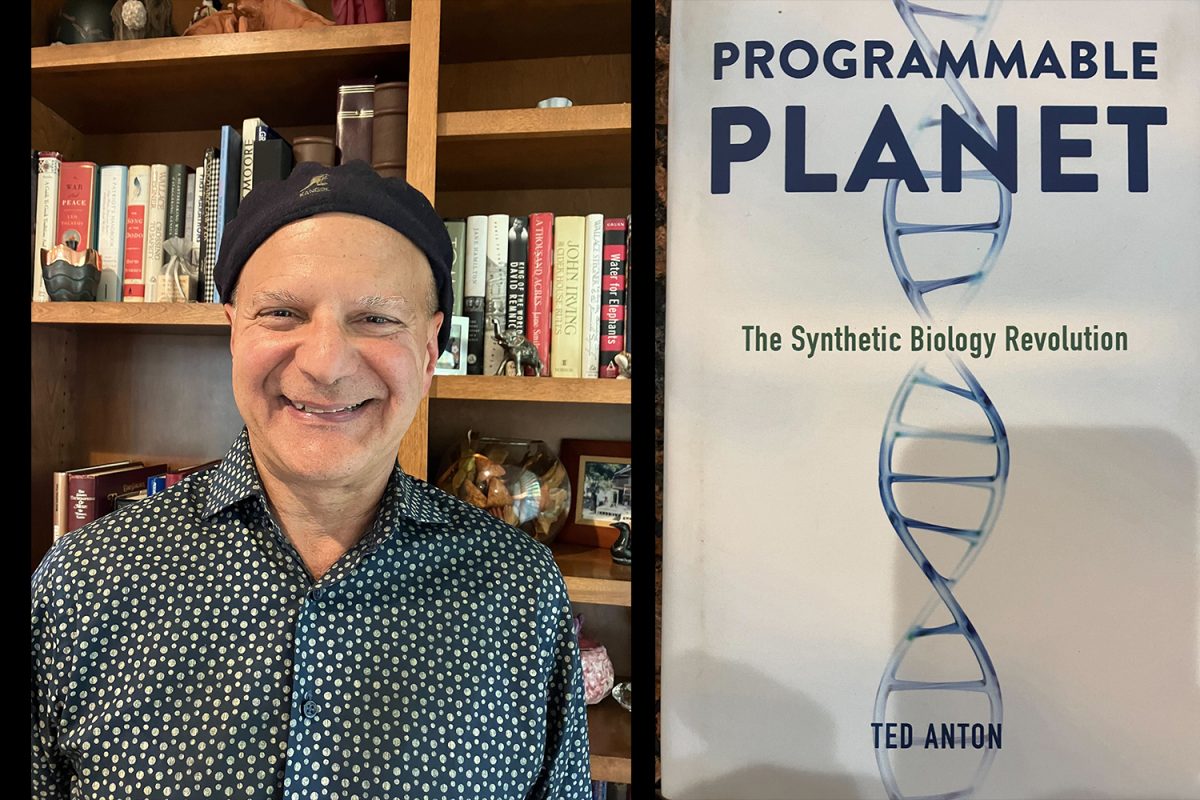An alum of the University of Iowa, Ted Anton has written for The Wall Street Journal, Slate, Publishers Weekly, Chicago, The Chicago Tribune, and more. His novel, “The Longevity Seekers,” published by the University of Chicago Press in 2013, has gotten endorsements from Dr. Oz and Oprah.
Anton is a professor emeritus of English at DePaul University. He will read from his new book, “Programmable Planet: The Synthetic Biology Revolution,” at Prairie Lights Bookstore in Iowa City on Friday.
He is also currently a nominee for a National Magazine Award in Reporting and a Carl Sandburg Award-winner in nonfiction.
The Daily Iowan: In your book, your focus is geared toward one aspect of science — synthetic biology. How would you describe synthetic biology and its impact on our world?
Ted Anton: Synthetic biology is changing life by changing DNA. This goes back to the beginning of agriculture and all the crops. Of course, then, it was done the old-fashioned way by breeding. But in the 1970s came this thing called gene editing. Scientists had this breakthrough to create insulin by modifying microbes whereas, before, you’d have to kill tens of thousands of calves to get your insulin. Nowadays, the techniques have improved so much that you can change many genes at once; you can direct evolution, you can create whole circuits in a cell, new kinds of cells, and even new forms of DNA. Synthetic biology did for life what Apple did for the computer: It made it easier to program.
Do you think synthetic biology is a positive advancement, or could it be seen as something harmful?
Personally, I think it has a lot more positive effect. It’s a great breakthrough that can help us live more sustainably with the planet, biofuels, meatless meat, all the cheese we eat is made through synthetic biology using the enzyme rennet, which is used in jet fuel, and other really important sustainable products. But it’s a big question. The COVID-19 vaccine that you and I took, which saved the world, was created from this research. Some people still wonder if the virus originated in the lab that was modifying viruses in Wuhan, China.
What was your favorite part about writing “Programmable Planet: The Synthetic Biology Revolution,” and why?
I loved talking to the scientists; it’s a field particularly dominated by women. I also loved visiting labs and talking to cool people who are generally younger than me, funny, excited, and trying to make the world a better place.
Coming from being a UI Writer’s Workshop graduate to receiving endorsements from figures like Dr. Oz and Oprah Winfrey, what is one piece of advice you would give to your younger self?
I think people coming out of the humanities field are a little afraid of science. Science writing is this really cool field where you can continue to do your photography and your poems, and yet you can be writing about research and cutting-edge things that make the planet better — and getting paid well. Most of literature is about things going wrong and most of journalism is the same old story over and over again.
Science is what’s new, it’s what’s hopeful. So that would be what I would tell myself; you can do it, have a little confidence, and everybody’s going to help you because researchers love it when young people want to write about them. It’s also very helpful for them; they have to publicize their work because it’s our taxpayer money that pays for it.



